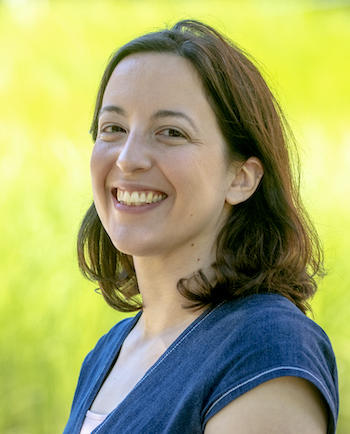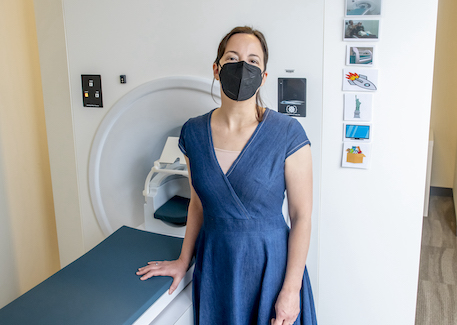George Mason University researcher Allison Jack recently received an Autism Center of Excellence (ACE) Network award from the National Institutes of Health (NIH) for her research efforts aimed at understanding why some autistic individuals receive very late diagnoses, or none at all.

NIH’s ACE Program funds large research projects to understand and develop interventions for autism spectrum disorder (ASD). This project is a collaboration between multiple universities, hospitals, and organizations.
“When we have people getting these late diagnoses that limit their ability to access a lot of supportive services,” said Jack, an assistant professor in Mason’s Psychology Department, “we were also noticing in our data that these individuals who had these late diagnoses were reporting much poorer quality of life with greater anxiety and depression.”
Jack has worked on the longitudinal project since its inception, starting as a postdoctoral fellow studying with Yale’s Kevin Pelphrey. Pelphrey, Jack and Lauren Kenworthy, director at Children’s National’s Center for Autism Spectrum Disorders, are the three MPIs on the project.
During the early phases of the project, their team looked at children between the ages 8-17. “We tried to describe autistic girls, their brains, their genetics, and their behavior. Are they different from autistic boys in any way? Are they different from neurotypical kids?”
The following phase of the project was disrupted by COVID. “It ended up being a lot of online follow-ups with these kids who had come in the first five years of the project,” said Jack. “They were getting older, and we were following them into adolescence and the transition into adulthood to see how these youth were doing over time.”

A tangible product their team hopes to have at the end of their research will allow patients to be diagnosed who are routinely missed by current methods.
“Ultimately, the tool will be a concise series of questions that an individual and/or caregiver can answer via a smartphone, web page, or via pencil and paper,” said Pelphrey, who is part of the Child Study Center at the Yale School of Medicine. “This tool will provide a diagnostic access point for adolescents and adults at risk for late diagnosis.”
“Dr. Jack started with us and was instrumental in making this project successful,” said Pelphrey. “She’s been the primary author on several of the most important and impactful papers to come out of this work. It’s been an honor to watch her professional development.”
The award is special, said Jack, due to its highly competitive and high-profile nature.
This is the project’s third round of funding since 2012. "The sites that are working on east centers or east networks tend to get thought of as premiere locations for autism research nationwide, so this is a pretty big deal in the autism world!” said Jack.
